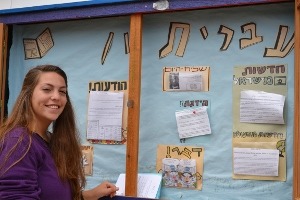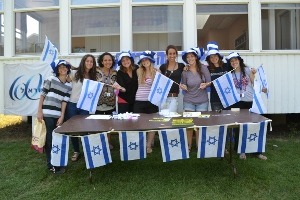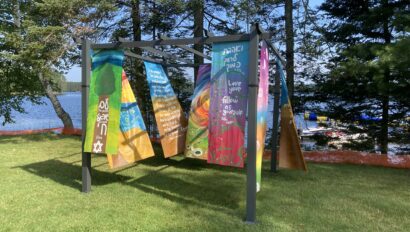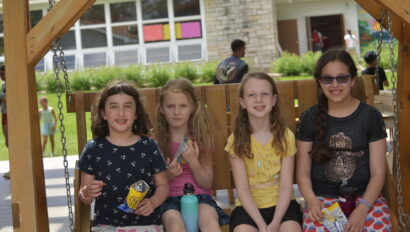In addition to our Judaic studies program as we highlighted last week, our campers are also involved in Hebrew language study, both in and out of the classroom. Campers in Kochavim through Machon learn Hebrew for 45 minutes five times a week. In Kochavim (4th grade), Garinim (5th grade) and Halutzim (6th grade), campers learn the vocabulary of camp – words for food and phrases to use in the dining halls. They also learn greetings, words for clothing, and other basic phrases to help them navigate the all-Hebrew announcements and signage at camp.
Campers in Kochavim through Machon learn Hebrew for 45 minutes five times a week. In Kochavim (4th grade), Garinim (5th grade) and Halutzim (6th grade), campers learn the vocabulary of camp – words for food and phrases to use in the dining halls. They also learn greetings, words for clothing, and other basic phrases to help them navigate the all-Hebrew announcements and signage at camp.
Campers in Solelim (7th grade) and older learn a broader spectrum of vocabulary based on a weekly theme. For example, during the first week of July when we held our Yom Sport (Sports Day), the theme for the week was the Olympics. Campers learned how to discuss sports in Hebrew and talked about the 1972 Munich Olympics, during which 11 Israelis were murdered.
Campers in Bogrim (9th grade) and Machon (10th) can further expand their vocabulary and knowledge of life in Israel through Israeli film classes. The films spark great conversations on Israeli culture and society.
Campers looking to improve their conversational Hebrew can be a part of our Ulpan, which meets twice a day four times a week. These classes are based on the techniques used for teaching immigrants new languages. One of our newer programs is the Daber program, which encourages campers to use Hebrew outside of the classroom. Throughout the day, they can earn “Daber shekalim” when their teachers “catch” them using Hebrew. Each cabin works together to combine their shekels to buy cabin prizes like an ice cream party at the Daber shuk (see photos). Prizes are awarded by cabins rather than individually so campers will encourage each other to speak in Hebrew.
One of our newer programs is the Daber program, which encourages campers to use Hebrew outside of the classroom. Throughout the day, they can earn “Daber shekalim” when their teachers “catch” them using Hebrew. Each cabin works together to combine their shekels to buy cabin prizes like an ice cream party at the Daber shuk (see photos). Prizes are awarded by cabins rather than individually so campers will encourage each other to speak in Hebrew.
Campers love taking a ride on the Monit HaKesef (Cash Cab), a golf cart decorated with Israeli flags, and answering questions posed in Hebrew by Mishlachat members. It’s just one of the many fun ways that Hebrew is integrated into camp life.






